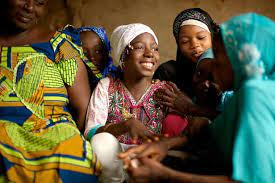
Violence against women is a pervasive global issue that transcends borders, cultures, and socio-economic backgrounds. In Nigeria, like in many parts of the world, women continue to face various forms of violence, including physical, sexual, emotional, and economic abuse.
This article aims to explore the alarming prevalence of violence against women in Nigeria, examine its root causes, analyze the existing legal and societal frameworks, and propose strategies to create a safer society for women.
Prevalence of Violence Against Women
The prevalence of violence against women in Nigeria is deeply concerning. According to a report by the National Demographic and Health Survey (NDHS) in 2018, 30% of Nigerian women aged 15-49 have experienced physical violence, while 14% have experienced sexual violence.
These statistics, however, likely represent an underestimation due to underreporting resulting from societal stigma, fear, and lack of awareness.
Root Causes of Violence Against Women
Understanding the root causes of violence against women is crucial to addressing the issue effectively. Several factors contribute to the perpetuation of such violence in Nigeria:
Gender Inequality
Deep-seated gender inequalities, manifested through unequal access to education, economic opportunities, and decision-making power, contribute to the vulnerability of women. This creates an environment where women are often seen as subordinate to men, justifying discriminatory and violent behavior.
Cultural Norms and Practices
Certain cultural norms and practices in Nigeria inadvertently promote violence against women. Practices such as child marriage, female genital mutilation, and widowhood rites can leave women in vulnerable and disadvantaged positions, increasing their susceptibility to violence.
Weak Legal and Justice Systems
While Nigeria has laws in place to address violence against women, implementation and enforcement remain significant challenges. The legal system's inefficiencies, corruption, and lack of awareness among both law enforcement officials and citizens hinder the access of survivors to justice.
Socioeconomic Factors
High levels of poverty, unemployment, and economic dependency exacerbate the vulnerability of women to violence. Economic insecurity can force women to stay in abusive relationships due to limited financial alternatives.
Legal and Societal Frameworks
Nigeria has taken steps to combat violence against women by enacting laws such as the Violence Against Persons (Prohibition) Act (VAPP) in 2015, which criminalizes various forms of violence, including rape, domestic violence, and harmful traditional practices. However, despite these legislative efforts, there are gaps in implementation and enforcement.
Societal attitudes also play a pivotal role in shaping the prevalence of violence against women. Victim-blaming, cultural acceptance of abusive behavior, and lack of awareness campaigns contribute to the perpetuation of the issue.
Towards a Safer Society
Creating a safer society for women in Nigeria requires a comprehensive and multi-faceted approach:
1. Education and Awareness
Public awareness campaigns and education initiatives should target both women and men to challenge harmful gender norms and promote respectful relationships. Schools and communities can serve as platforms for teaching gender equality and non-violent communication.
2. Legal Reforms and Enforcement
Strengthening the implementation of existing laws and policies, training law enforcement officials and legal professionals, and establishing specialized courts for handling cases of violence against women can help survivors access justice more effectively.
3. Support Services
Establishing shelters, helplines, and counseling services for survivors of violence is crucial. These resources provide a safe haven and necessary support for women seeking to escape abusive situations.
4. Economic Empowerment
Programs that provide vocational training, microfinance opportunities, and job placements can empower women economically, reducing their vulnerability to violence and providing them with alternative means of support.
5. Engaging Men and Boys
Including men and boys in the conversation about gender equality and violence prevention is essential. Men can serve as allies and role models in challenging traditional norms and behaviors.
6. Data Collection and Research
Continuous data collection and research on violence against women can help monitor progress, identify trends, and guide evidence-based policy decisions.
7. International Collaboration
Collaborating with international organizations, NGOs, and other countries can facilitate the exchange of best practices and resources to address violence against women more effectively.
Conclusion
Violence against women in Nigeria remains a pressing issue that requires concerted efforts from all segments of society. By addressing its root causes, strengthening legal frameworks, promoting awareness, and providing support services, Nigeria can work towards creating a safer society where women are empowered, respected, and free from violence.
The path to achieving this goal is challenging, but the potential benefits for individuals, families, communities, and the nation as a whole are immeasurable.




















